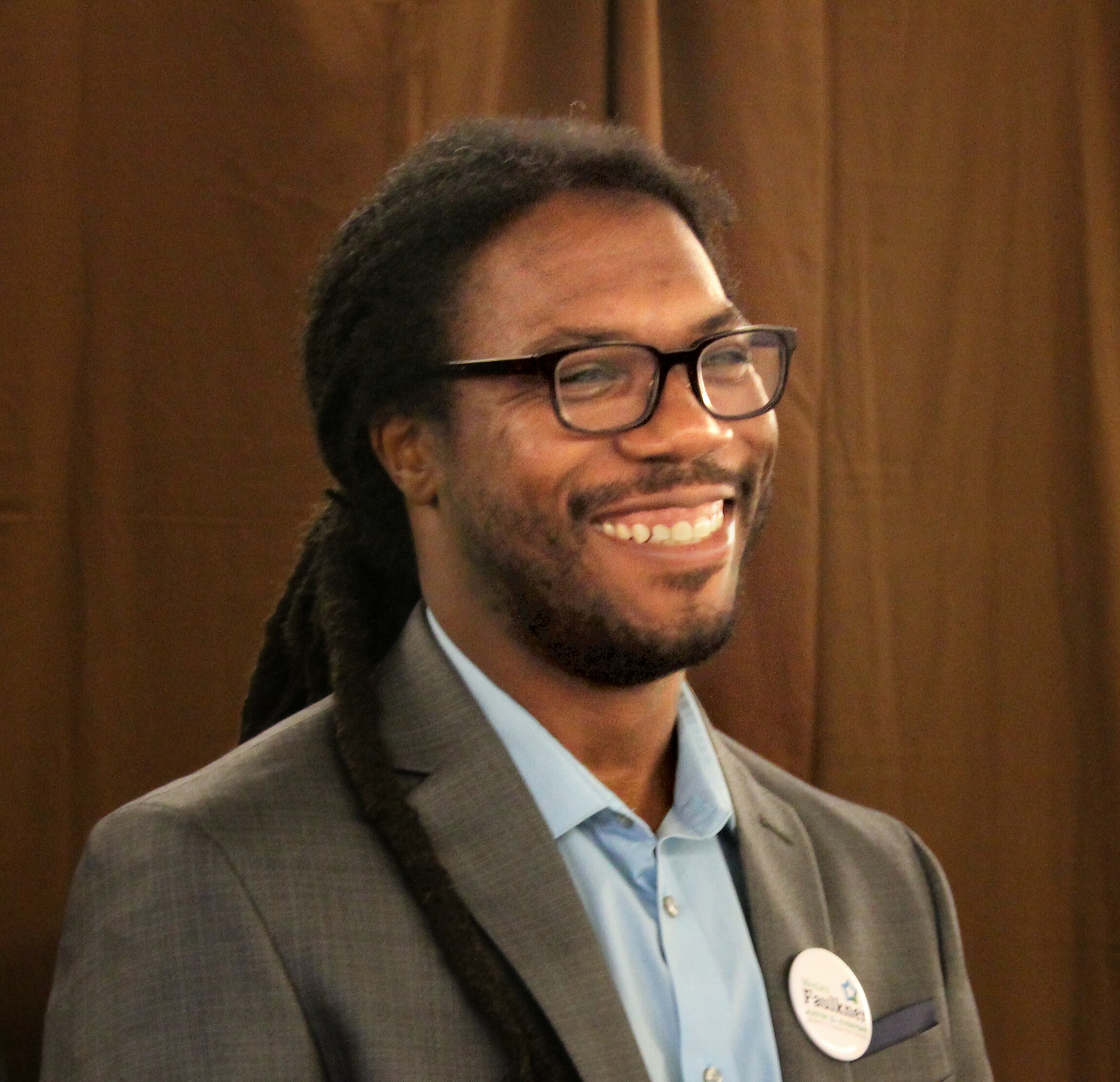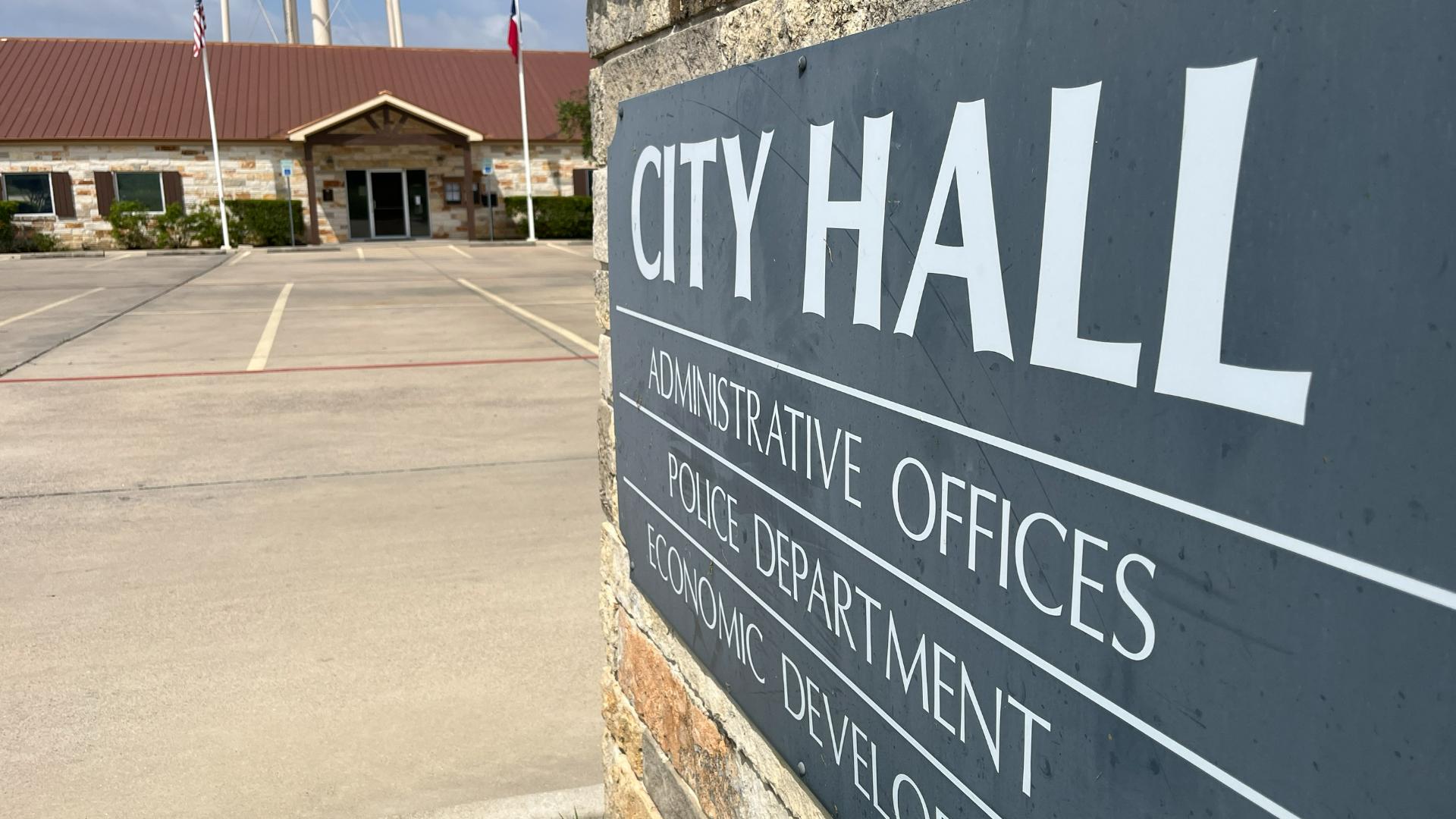Houston native Wesley Faulkner decided to move west in 1995 to study electrical computer engineering at the University of Texas at Austin. He quickly fell for Austin’s charms and settled into what has now been considered District 2 about 10 years ago.
“I think Austin has been a great place, has been a great home for me,” he said.
While in Austin, Faulkner also attended St. Edward’s University where he studied computer science.
Faulkner said his passion lies in community service and he has volunteered with Meals on Wheels, A Glimmer of Hope, Big Brothers and Big Sisters of Central Texas, Austin Dog Alliance, Baty Elementary School and the Texas School for the Blind.
He is currently on the Advisory Board of SXSW Interactive and a founding member of Open Austin, a group that advocates government transparency.
Faulkner traded in his career in the tech sector to become the Social Media Director at Namecheap and now, he is looking to change careers once again and serve as the council member for District 2.
“I thought about running previously for the previous election but my family was fairly young and I just couldn't get away,” Faulkner said.
He and his wife, Dr. Margret Tate, have two young children; their son Oliver is four years old and daughter Violet is one.
“But I was happy that we moved to the 10-1 system, thinking that our district would be more represented in City Council. Then I saw a lot of the decisions that have been made are counter to what the incumbent [Delia Garza] has run on in terms of affordability and progressive issues,” said Faulkner. “The Pilot Knob deal in Southeast Austin was projected to give us 10-percent affordable housing for people moving into that area in exchange for 30-years worth of fees and higher rates for everyone in Austin and I didn't think that was a fair trade-off for penalizing people who currently live here for a development that are only giving us 10-percent of affordable housing for people moving here. Also, some decisions just don't make any sense. The body cam purchase from Taser was very unbalanced. Big portion of that for body cameras were for iPhones because the body cameras that they decided to go with don't have location-based tracking, don't have upload ability and they have to be tethered to a phone in order to even work properly when we could have gotten the solution that was much cheaper that had all the functions. And from a person from the tech industry, it just didn't make sense. So there's a lot of issues that just looking at them don't help Austin, they don't help us at all, they hurt the people who live here. And there's a lot of complaining about how much we left, we lost because of property tax, the homestead exemption being raised, which was approximately $3 million, but if you look at just the bodycam deal, we could have gotten that money just by making a smart choice.”
Faulkner has lived in Southeast Austin for 10 years and said his decision to run was also based on a growing divide within the city.
“I wanted to run because I just don't like the division that I'm seeing between tech, businesses, the people that have been here, the new people that are coming in. I think there's a lot of animosities and I think that's because we're not working together and our city council's not bringing us together,” Faulkner said. “We have a lot of complicated problems with transportation and especially in District 2, low incomes and I don't think we're focused on those issues. We have a lot of brainpower here and we really should use that to fix some of these major issues.”
ON THE ISSUES
Q: Are you for or against Proposition 1, Austin’s Mobility Bond, and why?
“The short answer is I'm against it. The long answer is I think that the package makes sense, there's a lot of things in the bond that will address some of the transportation issues. I think trails, bicycle lanes and even in the corridors and the SMART corridors plan makes sense, so everything makes sense in it. The part that's missing for me is that there's a price tag but there's not a result-oriented goal that's attached to that price tag. So I don't know if we're going to get a 10 percent increase in mobility, a 20 percent, a 30 percent, a 50 percent. And without knowing what we'll get in exchange for that money, it's hard to determine if we are getting the value that we're promised. So I think everybody's looking at the mobility bond and thinking it's going to fix some problems that they're having and we just need to make sure that we are spelling it out so that our expectations are set correctly.”
And just because that piece is missing, that means that the city can't be held accountable for how they spend the money and when and so if we don't have that accountability I think that erodes public trust.”
Q: What action do you believe the city needs to take to address traffic congestion?
“There's a lot of low-hanging fruit that we can do. The light switching is one and that doesn't require any construction. Bike lanes are great, trails are great. I think we do need work on roads, but if we spend all this money on traffic studies and we're saying 'this will increase traffic if the engineers are able to come up with that assessment, there has to be some sort of percentage attached to it. So I believe the data's there, I just don't think that the city's being too forthright with what we should get from it. So I agree we probably need to do a mobility bond, but short of that if it doesn't pass I think we still need to push this forward with some of the items on it with our current bond capacity we should be able to fund those.”
Q: The Martin Prosperity Institute found Austin is the “most economically segregated major metro area in the U.S.,” how do you propose Austin address this?
"The segregation of our city is built into our laws and goes back for generations. We need to change the system that says where people can live and work, and remove the bias. Once that is done we need to incentivize companies to establish offices in these lower income areas to help raise incomes. Then we diversify neighborhoods by building new affordable missing middle housing in areas that embrace people with different backgrounds. It has taken decades to get to where we are, and it will take a while to change that, but the hard work needs to start now. Austin is a welcoming and caring city. Together we can move forward to make this city an equitable place to live for our kids and for generations to come."
Q: How can the city increase affordability related to the cost of houses in Austin?
“Our department for issuing permits is really bogged down. It's one of the worst in the nation. We should look at revamping that and automating as much as we can so that we can fast track as much of this housing as possible to get people building and that will help not just for the market rate housing, but there's a lot of non-profits that want to do building where time is money. They have someone on retainer, they have construction crews on standby, they have to house some of the materials waiting for that permit to come through to start building and if we make that process faster, then it's going to lower those costs and help build out those properties. Also, with affordability and transportation, they do come hand in hand because if you have cheap housing, but you have no public transportation or it's not easy to get to there, then you're going to spend money on buying a car. Then you have a car payment and you're going to spend time in traffic and time is money for people too. So we also need to look at diversifying where our companies set up shop and headquarters. So instead of staying all downtown or certain parts of town where it's more affluent, if we bring them to other parts, like District 2, then more companies will be feeding in money to that economy, hiring people who are there and the people who are currently live in District 2 can walk to work and bike to work and maybe not need to have a car and have car payments. And so it will help with the bottom up, meaning, helping people make more money, and the top down, increasing housing and job diversity so that Austin as a whole can be more affordable.”
Q: What do you believe is the biggest need of the residents in District 2?
“Income is something that everyone is worried about. The fees keep going up in terms of Austin Energy and the water utilities, taxes go up so if you own a home, which we're mostly renters, but if you own a home then your property tax keeps going up and Austin is becoming a place where it's not affordable to stay here and a lot of people are being forced out, multiple generations of people who've been in Austin are now having to decide whether or not they want to stay. So I would say the biggest issue is being able to afford to live in your home and not have to work 80-hour work weeks in order to afford to live and stay in Austin. And bringing companies, bringing more diversity and income into the district will help with affordability, help with housing and also with education because the people who will work in these industries will volunteer in our schools, they'll set examples, they'll be able to mentor in their neighborhoods and I think that being able to have a diversity of people living everywhere around Austin will help everyone in Austin.”
Q: On a lighter note, Austinites like to believe we live in the “Live Music Capitol of the World,” so tell us, what’s your favorite song?
"The Mother We Share" by Chvrches
MORE ON WESLEY FAULKNER
- Occupation: Social Media Manager at Namecheap
- Education: Studied Electrical Computer Engineering at UT-Austin; studied Computer science at St. Edward's University
- Birthplace: Brooklyn, NY
- Years in Austin: 19 (nonconsecutive)
- Mobility Bond: Against
To read more about Wesley Faulkner, go here.


